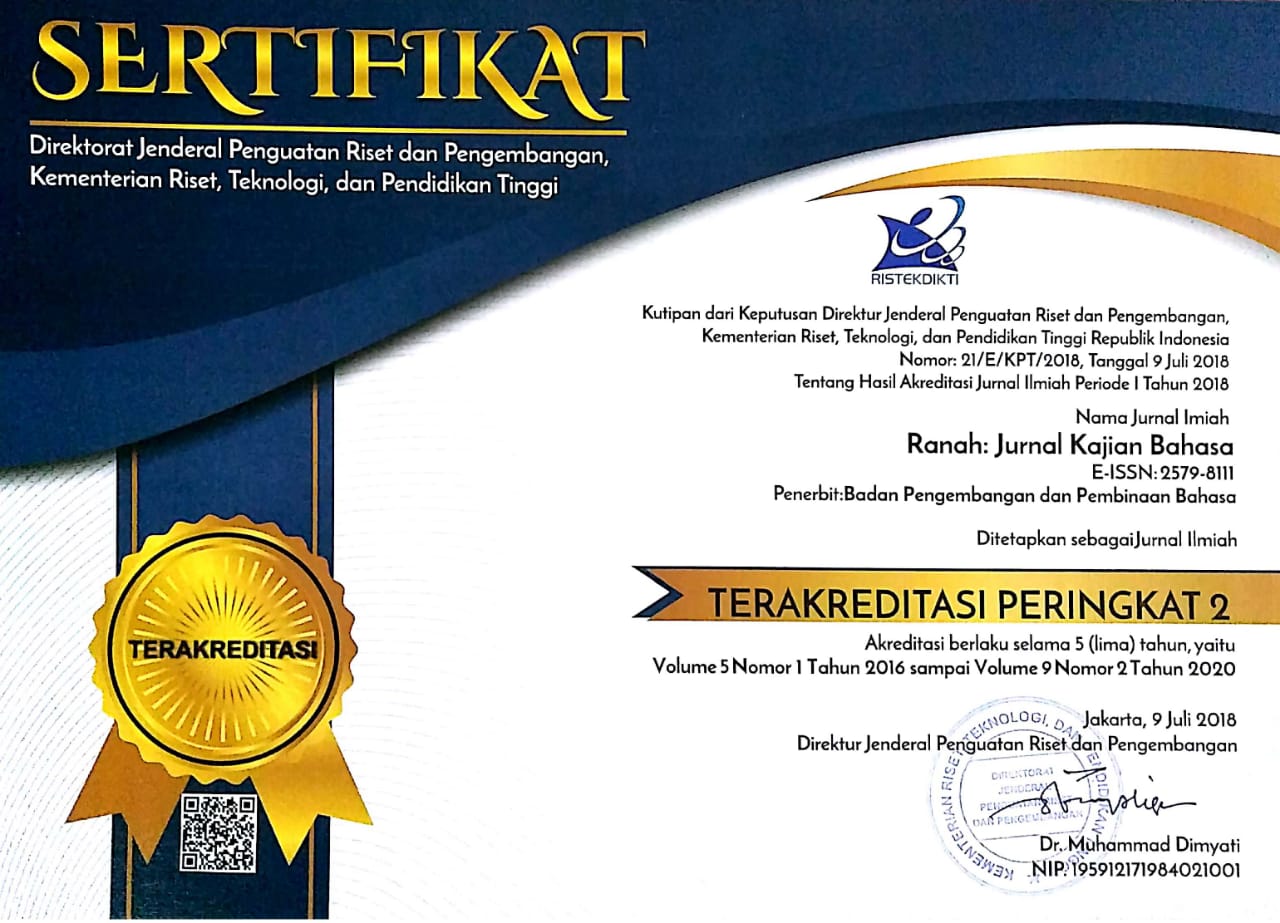Resistansi dan Alternatif dari Singularitas terhadap Empire dalam Film Captain Fantastic
Abstract
This paper aims to discuss the issues of singularity, resistance, and alternatives chosen by the subject to fight against the empire contained in Matt Ross's Captain Fantastic movie. The analysis was carried out using the visual analysis method through the stages of taking notes and selecting dialogues between the characters to then be elaborated through literature study. Based on the use of Antonio Negri's perspective, the results of the analysis found that there was rejection of the homogeneity and capitalistic global order formed by the empire. This then gave rise to a singularity with independent human subjectivity. The subjectivity begins with the family structure to resist the all-materialistic and consumerismstic life order. Resistance takes place through a pattern of life and education in the form of a combination of the traditional and the modern as an alternative to dealing with empire.
Abstrak
Tulisan ini bertujuan untuk membahas mengenai persoalan singularitas, resistansi, dan alternatif yang dipilih oleh subjek untuk melakukan perlawanan terhadap empire yang terdapat dalam film Captain Fantastic garapan Matt Ross. Analisis dilakukan dengan menggunakan metode analisis visual melalui tahapan mencatat serta menyeleksi dialog antartokoh untuk kemudian dielaborasi melalui studi kepustakaan. Berdasarkan penggunaan perspektif Antonio Negri, hasil analisis menemukan bahwa terdapat penolakan terhadap homogenitas dan tatanan global yang kapitalistik bentukan empire. Hal itu kemudian memunculkan singularitas dengan subjektivitas manusia yang merdeka. Subjektivitas tersebut diawali dari tatanan keluarga untuk melakukan resistansi terhadap tatanan kehidupan yang serba materielistisk dan konsumerismetik. Resistansi berlangsung melalui pola kehidupan dan pendidikan yang berupa perpaduan antara yang tradisional dengan yang modern sebagai alternatif untuk menghadapi empire.
Keywords
Full Text:
PDF (Bahasa Indonesia)References
Alford, S. E. (2017). Capitalism Rejected is Education Perfected: The Imperfect Examples of Tarzan's New York Adventure and Captain Fantastic. Class, Race and Corporate Power, 5(1), 3.
https://doi.org/10.25148/CRCP.5.1.001670
Bercedo, I., Vilatova, R., Melich, G., & Fradley, E. (2003). N for Negri: Antonio Negri in Conversation with Carles Guerra. Grey Room, 11, 86-109.
https://doi.org/10.1162/15263810360661444
Biskind, P. (2016). Down and Dirty Pictures: Miramax, Sundance and The Rise of Independent Film. Bloomsbury Publishing.
Casarino, C., & Negri, A. (2008). In praise of the common: a conversation on philosophy and politics. U of Minnesota Press.
Connel, R. (2012). The poet of autonomy: Antonio Negri as a social theorist. Sociologica, 6(1), 0.
Field, S. (2012). Democracy and The Multitude: Spinoza Against Negri. Theoria, 59(131), 21-40.
https://doi.org/10.3167/th.2012.5913103
Foucault, M. (1997). Ethics, subjectivity and truth, vol. 1 (P. Rabinow, ed.). New York, NY: New Press.
Guattari, F., & Negri, A. (2010). New Lines of Alliance, Spaces of Liberty. Autonomedia.
Hardt, M., & Negri, A. (2000). Empire. Harvard University Press.
https://doi.org/10.4159/9780674038325
Hardt, M., & Negri, A. (2004). Multitude: War and Democracy in the Age of Empire. The Penguin Press.
Hardt, M., & Negri, A. (2009). Commonwealth. Harvard University Press.
https://doi.org/10.2307/j.ctvjsf48h
Lynch, D. S. (1998). The Economy of Character: Novels, Market Culture, and the Business of Inner Meaning. University of Chicago Press.
Makarychev, A., & Yatsyk, A. (2017). Biopolitics and national identities: between liberalism and totalization. Taylor & Francis.
https://doi.org/10.1080/00905992.2016.1225705
Murphy, T. S., & Mustapha, A.-K. (2007). The Philosophy of Antonio Negri, Volume Two: Revolution in Theory. London: Pluto.
Nash, R. F. (2014). Wilderness and the American Mind. Yale University Press.
Negri, A. (1999). Insurgencies: Constituent power and the modern state (Vol. 15). U of Minnesota Press.
Negri, A. (2004). Negri on Negri: in conversation with Anne Dufourmentelle. Routledge.
https://doi.org/10.4324/9780203508107
Negri, A., & Henninger, M. (2007). Art and Culture in the Age of Empire and the Time of the Multitudes. SubStance, 47-55.
https://doi.org/10.1353/sub.2007.0020
Rapold, N. (2016). CAPTAIN FANTASTIC. Film Comment, 52(4), 72.
Ross, M. (2016). Captain Fantastic. Bleecker Street.
Sarasati, S. H. (2017). The Manifestation of Anti-Modern Values Performed by Ben Cash's Family in Captain Fantastic Movie by M. Ross. Universitas Brawijaya.
Sculos, B. W. (2016). Parenting for Progress: Reflections on Matt Ross's Captain Fantastic. Class, Race and Corporate Power, 4(2), 6.
https://doi.org/10.25148/CRCP.4.2.001665
Shibasaki, A. (2018). Towards Global Multitude and Assembly: An Analysis of the Works of Antonio Negri and Michael Hardt. Journal of Global Media Studies, 23, 31-55.
Shivhans.com. (2016, July). Captain Fantastic. Shivhans.Com.
Weeks, K., Murphy, T. S., & Mustapha, A. K. (2005). The philosophy of Antonio Negri: Resistance in practice.
DOI: https://doi.org/10.26499/jentera.v11i2.3479
Refbacks
- There are currently no refbacks.






















